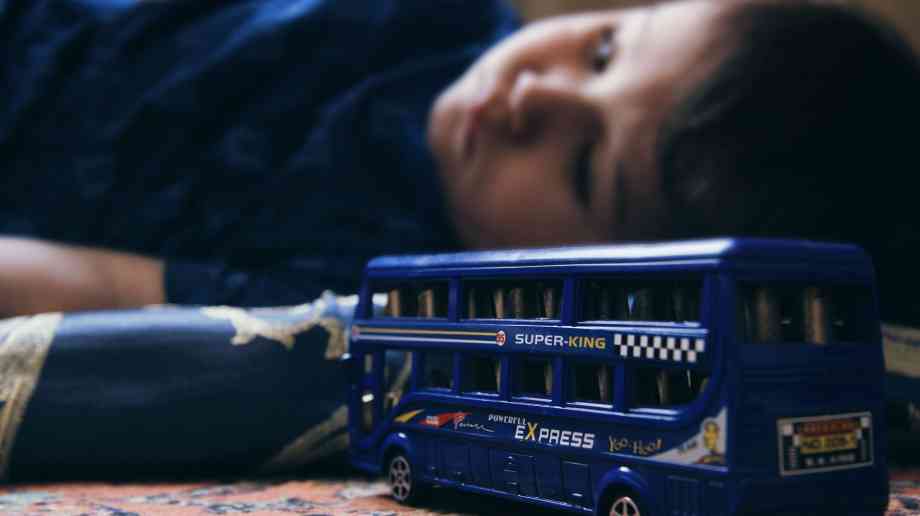Sue Robb of 4Children talks to Julie Laughton and Alison Britton from the Department for Education about the role of childminders in delivering the 30 hours free entitlement.
1.1 million children unhappy with their lives during lockdown

A survey by The Children’s Society has revealed that nearly one in five children aged 10-17 in the UK have reported being unhappy with their lives as a whole during the coronavirus lockdown.
The equivalent of 1.1 million children, the Children’s Society says the coronavirus crisis and lockdown is likely to explain the worrying surge in unhappy children. The charity’s annual survey of children’s well-being, completed by just over 2,000 young people and their parents between April and June, found that 18 per cent of children were dissatisfied with their lives overall, an increase on a figure which has ranged from 10 per cent to 13 per cent over the last five years.
The report, Life On Hold, also found that 50 per cent of parents expected coronavirus to harm their children’s happiness over the coming year. When parents and their children were asked questions about the impact of coronavirus, 46 per cent of parents reported their child was unhappier with how much choice they have in their lives due to the pandemic.
The crisis has also had a real impact on children’s relationships with friends and family. Children reported that the aspects of coronavirus they struggled to cope most with were being unable to see friends (37 per cent) and family (30 per cent).
The survey found fears about the financial impact of coronavirus among parents – and evidence that children in poverty were more worried during lockdown.
Mark Russell, chief executive at The Children’s Society, said: “Children’s lives have been turned upside down by the coronavirus crisis and these worrying findings suggest it has already harmed the happiness and well-being of many young people. They have been left unable to attend school or see friends and relatives, while at the same time being trapped at home with parents and siblings who may have their own worries and anxieties about the situation.
“Even before the pandemic, children’s happiness with life was at its lowest for a decade and we know there is a link between low well-being and mental health conditions like anxiety and depression. Urgent action is needed now as we recover from coronavirus to reset how we support children’s well-being and prevent this crisis harming a whole generation of young people. That must mean introducing measurement of children’s well-being, support as they return to school, a properly funded early intervention strategy and better financial support for low-income families.”
Judith Blake, Chair of the Local Government Association’s Children and Young People Board, said: “Councils have worked closely with schools during the coronavirus pandemic to keep children safe and support their well-being and will continue to do so as children return to school from September. This report reinforces our concerns that the impacts of lockdown will be far reaching for some children, young people and their families, whether as a result of hidden harms, poverty, mental health problems or substance misuse.
“Councils are best placed to coordinate support for children and families to cope with the long-term implications of the pandemic but expect to see a significant rise in referrals to children’s social care. The government needs to use the forthcoming Spending Review to ensure councils have long-term, sustainable funding to invest in preventative, universal and early help services so children, young people and families receive the practical, emotional, educational and mental health support they need, as soon as they need it.”
Company Focus
Located in Bromley, Japanese Knotweed Eradication Ltd has been providing solutions in the treatment and removal of Japanese Knotweed (Fallopia Japonica) for over a decade. During this time we have mastered a repertoire of methods, from herbicidal treatments to landscaping solutions, tailored to address the unique challenges our clients face with this pervasive weed.
Event Diary
UKREiiF has quickly become a must-attend in the industry calendar for Government departments and local authorities.
The multi-award-winning UK Construction Week (UKCW), is the UK’s biggest trade event for the built environment that connects the whole supply chain to be the catalyst for growth and positive change in the industry.
Supplier Profiles
Geo Energy
At GeoEnergy Design, we're on a mission to disrupt the traditional way heating and cooling ha
Latest Features
Professor Harith Alani, director of the Knowledge Management Institute at the Open University explains how AI can be used for good and bad.
Alex Lawrence, head of health & social care, techUK sets out techUK’s Five Point Plan for CareTech.

















